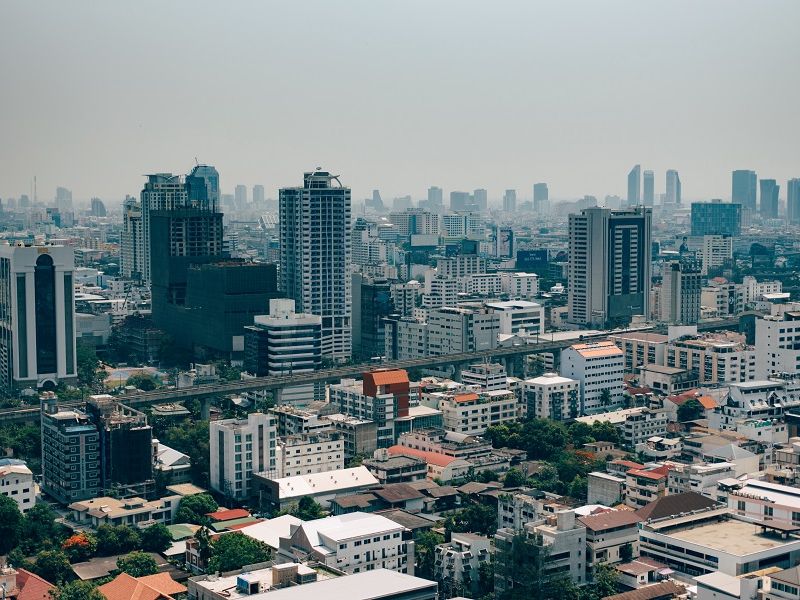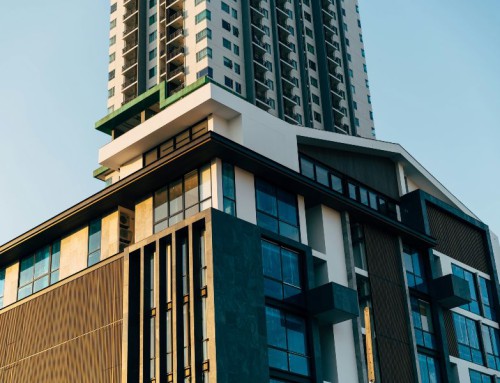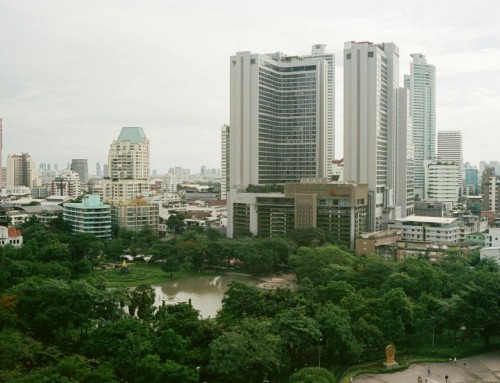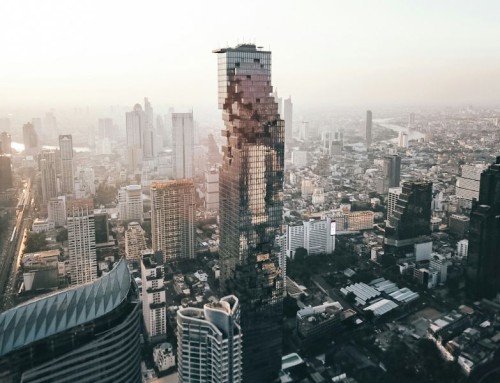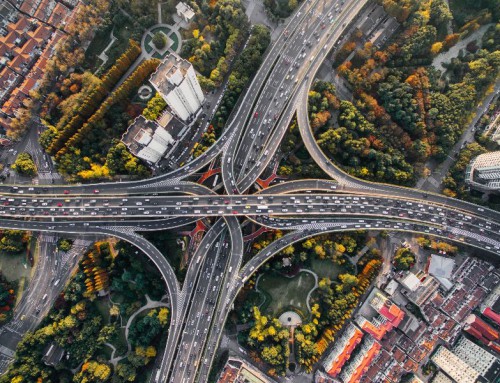On November 2018, Thailand’s National Legislative Assembly passed the Land and Building Tax Act. This act replaces the current House and Land Tax Act B.E. 2475 (1932), the Local Land Development Tax Act B.E. 2508 (1965), the Notification of the National Executive Council No.156 B.E. 2515 (1972) and the Royal Decree Designating the Medium Price of Land for Land Development Tax Assesment B.E. 2529 (1986). The Land and Building Tax Act was published in the Government Gazette and it came into effect on the 1st of January 2020.
Aim and purpose of the Land and Building Tax Act:
The act aims to decrease the tax burden on property owners, introduce a more progressive tax system and encourage landowners to utilise their land. It also aims to improve the effectiveness of the tax collection process to increase government revenue.
The taxable properties under the Land and Building Tax Act:
1) Land
2) Buildings
3) Condominium Units
The taxable parties:
1) An individual or corporate entity land and building owner
2) A beneficiary to land and building owned by the government
3) Any individual or corporate entity liable to pay tax on behalf of taxpayers under the Act.
The classification of properties is broken up into four different categories:
1) Agricultural
2) Residential
3) Commercial
4) Vacant
Definition of Agricultural Property
Land or building that is used for agricultural purposes. This includes rice planting, farming, animal domestication and aquaculture.
The ceiling tax rate for agricultural property is 0.15%
Tax base exemption for properties with values less than or equal to THB 50 million for an individual land or building owner.
Individual owners of agricultural property will be entitled to a 3-year tax exemption from 2020 to 2022.
Definition of Residential Property
Land and, or building that is used for residential purposes. Places of dwelling.
The ceiling tax rate for residential property is 0.02%
Tax base exemptions for properties with values less than or equal to THB 50 million for an individual land and building owner.
Tax base exemptions for properties with values less than or equal to THB 10 million for an individual building owner.
[UPDATE]
In light of the COVID-19 situation, the Thai government has cut the tax of land and buildings by 90% for the taxes due in the tax year 2020. This is to relieve the burden on taxpayers.
The Thai government would also help local administrative organisations financially as well. These local administrative organisations rely on the collection of land and building taxes for their own expenses.
For most overseas property investors, you will not be affected by the Land and Building Tax Act. Under the existing law, first-home owners are already tax-exempted for the value of land and buildings up to 50 million baht, and 10 million baht if they only own the structures but not the land. Thus for condominiums, if you own one property and if that property is less than 10 million baht, you will not be taxed. If the value is higher than 10 million baht, then the tax rate will be 0.02%.
For example, if your property is 15 million baht, the tax payable will be 0.02% x 15 million = 3000 baht.
With the 90% cut, you will pay 300 baht.
Definition of Commercial Property
Land or building that is used for any other purpose other than agricultural and residential purposes. Namely for commercial use.
The ceiling tax rate for commercial property is 1.2%
Definition of Vacant Property
A property is deemed a Vacant Property if it is either left vacant or not properly or reasonably used.
The ceiling tax rate for commercial property is 1.2%
The tax rate will increase by 0.3% every three years for properties that are vacant with a cap of 3%.
When determining whether a plot of land can be deemed a Vacant Property, it must meet either of the following criteria:
1) It can be used for agricultural use but it is not being used as such criteria as determined by the Minister of Finance and Minister of Interior.
2) It can be used but has not been used for the entire tax year.
When determining whether a building can be deemed a Vacant Property, it must meet either of the following criteria:
1) It is ready and can be used for agricultural, residential or other purposes but has not been used for one of these purposes for the entire tax year; or
2) It is ready and can be used but was abandoned and was not used for the entire tax year.
The following are not considered as Vacant Property:
1) Any land that is being prepared for use.
2) Buildings that are under construction.
3) Any land or building that a law or court has issued an order forbidding its use.
4) Any land or building that is under the review of a court for matters of contention like legal titles and possessory rights.
Here are some details of the act and the changes from the acts which it replaced.
A change in the tax base and collection methods
Previously, the tax base was computed based on yearly rent. With the new Land and Building Tax, the tax base will be based on the value of the land or buildings as appraised by the government. The tax agent in charge of collecting taxes will be the local Subdistrict Administrative Organisation (SAO) for the subdistrict.
A change in the tax rate
Previously, the House and Land Tax levies a flat 12.5% rate on any property that is liable to pay taxes. The new Land and Building Tax is a progressive tax whereby tax rates increase as property appraised values increase.
Cut off and payment dates
Individuals and corporate entities who have ownership, posses or have the right to use certain land or buildings as of the 1st of January of each year, will be required to pay land and building taxes to the collecting tax agent. Tax payment will be due in April of every year.
Instalment payment of Land and Building Tax
A taxpayer may apply to the SAO to pay his Land and Building Tax in instalments if his tax payable is THB3,000 or more. The application to the SAO must be done by April of each year. There will be 3 equal instalments which must be paid in April, May and June of each year.
The Thai government has set, and extended, certain key deadlines in the Land and Building Tax Act
1) The Thai government will announce and notify taxpayers of subject-to-tax properties by 31st of March 2020. (The previous deadline was 30th November 2019)
2) The Thai government will announce the appraisal value of land and buildings, tax rates and other details related to tax collection by 31st May 2020. (The previous deadline was 31st January 2020)
3) The Thai government will issue tax assessment letters to all taxpayers by 30th June 2020. (The previous deadline was by 29th February 2020)
4) The Thai government has thus also extended the tax payment deadline from April 2020 to August 2020. Taxpayers who wish to pay their Land and Building Tax in instalments and who successfully applied to the SAO will have their 3 equal instalments paid in August, September and October 2020.
To minimise the tax burden on taxpayers, the following tax rates will apply for tax years 2020 and 2021
Low applicable tax rates (Tax year 2020–2021)
Agricultural Property
| Appraised value (Million Baht) | Tax rate |
|---|---|
| 0-75 | 0.01% |
| 75-100 | 0.03% |
| 100-500 | 0.05% |
| 500 – 1,000 | 0.07% |
| Above 1,000 | 0.1% |
Residential Property
| Appraised value (Million Baht) | Tax rate |
|---|---|
| 0-50 | 0.02% |
| 50-75 | 0.03% |
| 75-100 | 0.05% |
| Above 100 | 0.1% |
Commercial Property
| Appraised value (Million Baht) | Tax rate |
|---|---|
| 0-50 | 0.3% |
| 50-200 | 0.4% |
| 200-1,000 | 0.5% |
| 1,000-5,000 | 0.6% |
| Above 5,000 | 0.7% |
Vacant Property
| Appraised value (Million Baht) | Tax rate |
|---|---|
| Any appraised value | 0.3%, to increase by 0.3% every 3 years and capped at 3% |
Tax relaxation for current property taxpayers
For tax years 2020 to 2022, the Land and Building Tax Act provides a tax relaxation for properties that have been subject to the House and Land Tax or the Local Development Tax. The tax relaxation is applicable if the Land and Building Tax liability for the years 2020 to 22 is higher than the property tax liability for the tax year 2019. The act allows the current property taxpayers to pay property tax liability for tax year 2019 plus a portion of the additional tax based on the Land and Building Tax.
Marginal tax base = Land and Building Tax – Property tax liability in 2019
| Year | Tax payable |
|---|---|
| 2020 | Property tax liability in 2019 +25% of marginal tax base |
| 2021 | Property tax liability in 2019 +50% of marginal tax base |
| 2022 | Property tax liability in 2019 +75% of marginal tax base |
Tax exemption for certain land and buildings
The Land and Building Tax provides a broad tax reduction clause of up to 90% of the tax payable for reasons such as economic necessity or social context.
Penalties for late payment of tax
Late payment of tax will be subject to penalties of 40% of the tax payable with a monthly surcharge of 1%. The penalties and surcharges must be paid within 90 days of the property owner receiving the assessment letter. The local authorities, namely the SAO may seize, levy and sell the property by auction in order to recoup any unpaid tax, penalty and surcharge without having to obtain a court order.
The potential impact on the market
I do think that for individual homeowners, the impact is rather limited. The taxes that can be levied on homeowners with one property is rather low. In fact, the property has to be of substantial size and value for there to be taxes levied on the owner. We kind of saw this particular trend of governments levying taxes on homeowners with more than one property in certain developed property markets. Wealth distribution is extremely uneven across the globe especially when asset prices are rising. A progressive tax regime will help to alleviate wealth disparity. I personally have been dealing with Bangkok properties for the last 7 years and when couples want to purchase two properties, I would suggest that they each held one property in their own name. Moving forward, we should see a decoupling trend when it comes to property purchases.
The new Land and Building Tax Act seems to be targeting large landowners, especially those sitting on vacant land. The taxes on vacant land is rather significant as compared to if the land was put to use. We may see an increase in development as landowners try to put vacant land to use and this may cause an uptick in construction. Some landowners may want to develop some commercial activity on the land so as to avoid vacant land tax and also to generate some additional income to pay for the new Land and Building Tax.
The rush to develop land may cause some less financially sound landowners to over-commit and this may see some get into a financial burden if the decision to develop is not well calculated. This is especially true for those landowners without much expertise, experience and market knowledge in developing land. For some who are hoarding onto vacant land and do not want to undergo the hassle of developing the land, they will sell the land.
In the long run, having an efficient tax system will be good for the country. Taxes are a source of revenue for a country and since there are so many property owners in Thailand, having an efficient property tax collection system and regime can only bode well for the government coffers.
It would be interesting to see what the tax rates will be post-2021. The current tax rates are named the Low Applicable Tax Rates for tax years 2020 to 2021 and the Thai government may revise the tax rates after this period.
Do note that the Land and Building Tax Act is still in its infancy in terms of implementation and providing clarity to the various taxpayers. Separate royal decrees and ministerial statements are required to clarify and implement various aspects of the act. I will provide periodic updates in my blog and YouTube channels when there are updates to the Land and Building Tax Act.
Yours Sincerely,
Disclaimer: I run and co-own a property company in Thailand and run a property portal InvestBangkokProperty.com and the Invest Bangkok Property YouTube Channel. The purpose of this article is to educate readers of the various long stay visa options in Thailand and give my simple take on which options I think are most viable.
Other related articles:
An overview of the long stay visas for foreigners in Thailand
My views on the Singapore and Bangkok property markets
Thailand Property Market Outlook for 2019
How to get an Investment Visa in Thailand
Where are the up and coming property investment locations in Bangkok?
Thailand property inheritance laws: taxes, succession and wills
A guide to the top property developers in Thailand
Can a foreigner take a property loan in Thailand?
Recognising the different property title deeds in Thailand
Looking to buy a Bangkok condo? Things to take note of.
Factors that determine the property price in Bangkok
Thailand Property: Legal and Tax Issues
Thailand Property Market Outlook for 2018
Buying property in Bangkok: Payment procedures
The good locations for property investment in Bangkok.
How to get a Retirement Visa in Thailand
Thailand as a retirement destination
My personal experience purchasing a property in Bangkok
A compelling case to invest in Bangkok
Due diligence on property investment
